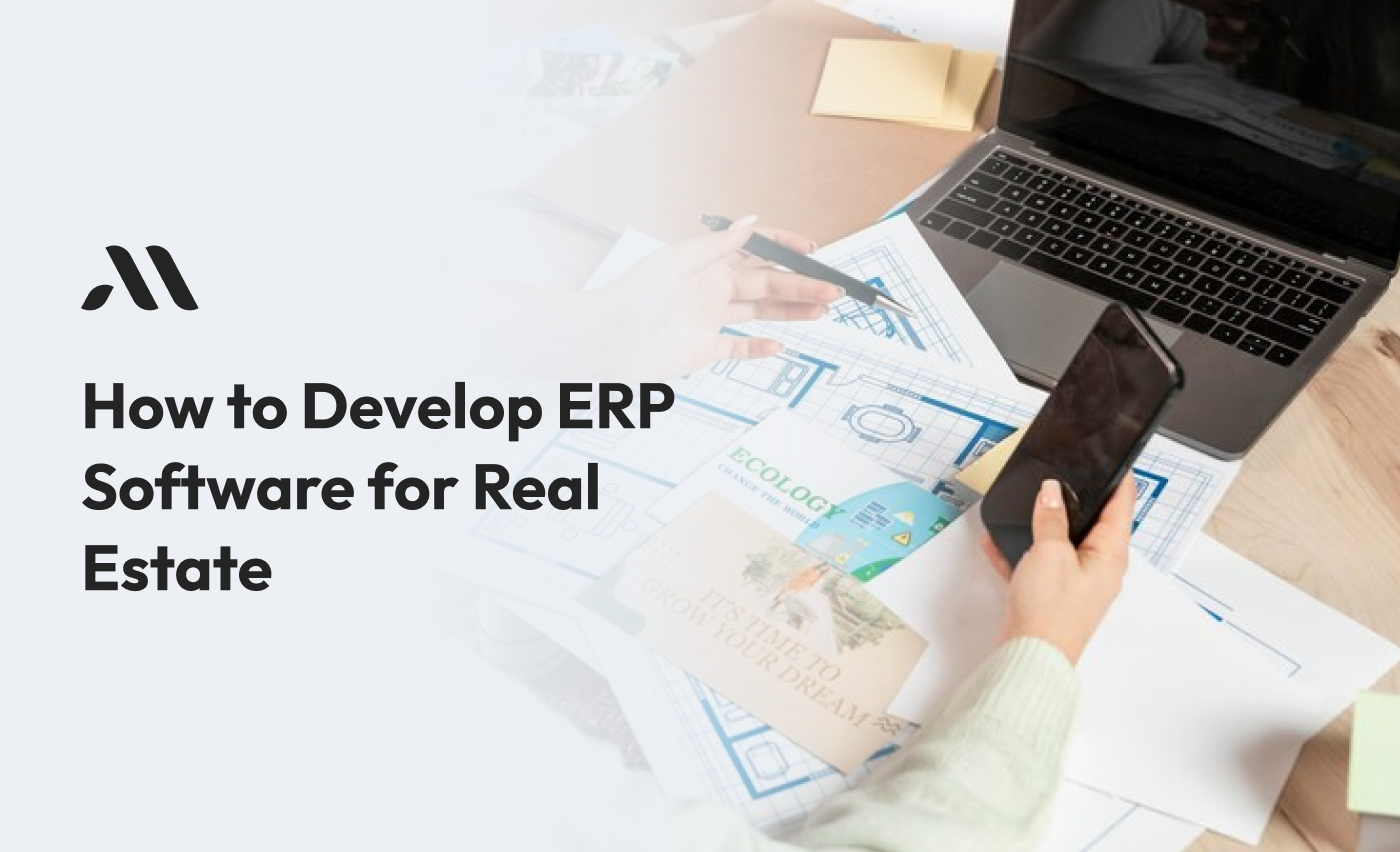Introduction
In the fast-paced world of real estate, managing various aspects of your business can be challenging. From keeping track of properties, clients, and Finances to handling marketing and sales, there's a lot to juggle. This is where ERP Software comes in. An ERP (Enterprise Resource Planning) system can help you streamline your operations, save time, and improve your overall efficiency.
"Efficiency is doing things right; effectiveness is doing the right things." – Peter Drucker.
But how do you go about developing the best ERP software for your real estate business? This article will guide you through the process, making it easy to understand even for someone with no technical background.
What is ERP Software?
ERP software is a type of software that helps businesses manage and automate their day-to-day activities. This includes everything from accounting, project management, risk management, and compliance, to supply chain operations. In the context of real estate, ERP software for real estate helps you manage properties, track client interactions, oversee financials, and handle various other tasks.
According to research, 95% of businesses that implement ERP software report improvements in their processes. This shows just how powerful ERP systems can be for your real estate business.
Why is ERP Important for Real Estate?
In real estate, every minute counts. ERP software helps you simplify your operations, which means you spend less time on administrative tasks and more time closing deals. An ERP system can help you:
- Manage properties and listings more effectively.
- Keep track of client interactions.
- Automate accounting and financial management.
- Improve communication within your team.
- Make data-driven decisions with real-time insights.
Remember: Investing in the best ERP software for your real estate business isn't just a luxury it's a necessity if you want to stay competitive in today's market.
How to Build an ERP System From Scratch
Building an ERP system from scratch can seem like a daunting task, but with the right approach, it's entirely doable. Here's a step-by-step guide on how to make ERP software for your real estate business.
Step 1: Define Your Business Requirements
The first step in developing ERP software is to clearly define your business needs. What are the key processes that you need the software to manage? For a real estate business, these might include:
- Property management
- Client relationship management (CRM)
- Financial management
- Sales and marketing
- Inventory management
By identifying these needs, you'll have a clear roadmap for what your ERP system should look like.
Step 2: Choose the Right Technology Stack
Once you've defined your business requirements, the next step is choosing the right Technology Stack. This involves selecting the Programming Languages, Frameworks, and Tools you'll use to build your ERP software. It's important to choose a technology stack that is scalable, secure, and suitable for your business needs.
You might want to consult with an ERP software development company to ensure you make the best choice.
Step 3: Design the System Architecture
Designing the system architecture is a critical step in the development process. This involves creating a blueprint for how your ERP system will function, including how different modules will interact with each other. For a real estate business, this might involve designing modules for:
- Property management
- CRM
- Financials
- Reporting and analytics
The architecture should be designed in a way that helps for easy updates and scalability.
Step 4: Develop and Test the Software
Once the design is in place, it's time to start coding. This is where the actual development of your ERP software begins. It's important to follow best practices in software development, such as writing clean, maintainable code and regularly testing the software to catch any bugs early on.
Testing is an important part of the development process. It ensures that your ERP system functions as expected and that there are no critical issues that could impact your business.
Step 5: Implement the ERP System
After development and testing, the next step is Implementing The ERP System in your real estate business. This involves installing the software, migrating any necessary data, and training your team on how to use the new system.
It's important to monitor the system closely during the initial implementation phase to catch and resolve any issues quickly.
Step 6: Provide Ongoing Support and Maintenance
Once your ERP software is up and running, the work isn't over. You'll need to provide ongoing support and maintenance to ensure the system continues to meet your business needs. This can involve:
- Regular software updates
- Fixing any bugs that arise
- Adding new features as your business grows
Working with an ERP Software Development Company can make this process much smoother, as they can provide the expertise needed to keep your system running smoothly.
Also Read - How to Develop a Custom CRM Software for Real Estate Business
Benefits of Using ERP Software in Real Estate
Now that we've covered how to build an ERP system, let's look at some of the benefits of using ERP software in your real estate business.
1. Improved Efficiency
One of the biggest advantages of using an ERP system is the improvement in efficiency. By automating routine tasks and providing real-time data, an ERP system allows you to focus on the more critical aspects of your business, such as closing deals and growing your client base.
2. Better Decision-Making
With access to real-time data and analytics, you can make more informed decisions. Whether it's deciding which properties to invest in or how to allocate your marketing budget, an ERP system gives you the insights you need to make the best choices for your business.
3. Enhanced Communication
An ERP system centralizes all your business data in one place, making it easier for your team to communicate and collaborate. Whether your team is in the office or working remotely, everyone has access to the same information, reducing misunderstandings and improving overall productivity.
4. Cost Savings
By automating routine tasks and improving efficiency, an ERP system can save your business money. According to a report by Panorama Consulting, businesses that implement ERP systems see a 20% reduction in operational costs on average. This makes investing in ERP software a smart financial decision.
Tip: When choosing an ERP Software Development Company, look for one with experience in the real estate industry. This ensures they understand your specific needs and can provide a solution customized to your business.
Conclusion
Developing the best ERP software for your real estate business is a significant investment, but one that can pay off in spades. By following the steps outlined in this blog, you can create an ERP system that simplifies your operations, improves efficiency, and helps you make better decisions. Whether you choose to build your ERP software from scratch or work with an ERP software development company, the key is to choose a solution that meets your specific needs.
Ready to simplify your real estate business with powerful ERP software? MicraSol specializes in creating easy-to-use, custom ERP solutions customized just for you. Let’s boost your efficiency and success together. Contact us today to start building your perfect ERP system!
By implementing an ERP system customized to your real estate business, you can achieve both efficiency and effectiveness, setting your business up for long-term success.
FAQS
Why does my real estate business need ERP software?
ERP software makes your business run smoother by organizing everything you need in one system. It saves time, helps you make better decisions, and keeps your team on the same page.
Can I build ERP software from scratch for my real estate business?
Yes, you can build ERP software from scratch! You start by figuring out what your business needs, then choose the right tools, design the system, and finally develop and test it. You might need help from an ERP software development company.
What should I look for when choosing ERP software?
Look for ERP software that has features for real estate, can grow with your business, is easy to use, fits your budget, and comes with good support and maintenance.
How can ERP software save my real estate business money?
ERP software saves money by automating tasks, improving efficiency, and helping you make better choices. Businesses that use ERP software often see a big drop in their costs.
Will my team need training to use ERP software?
Yes, training is a good idea! Even though ERP software is designed to be user-friendly, proper training will help your team get the most out of it.








